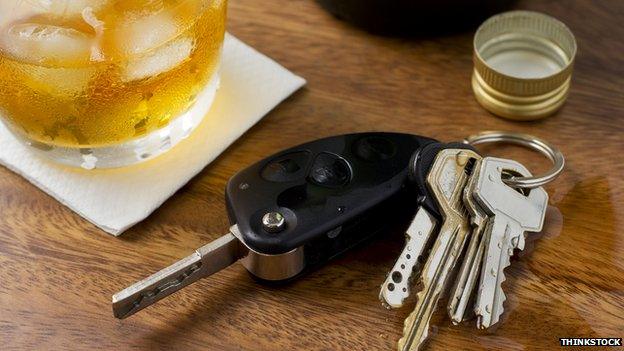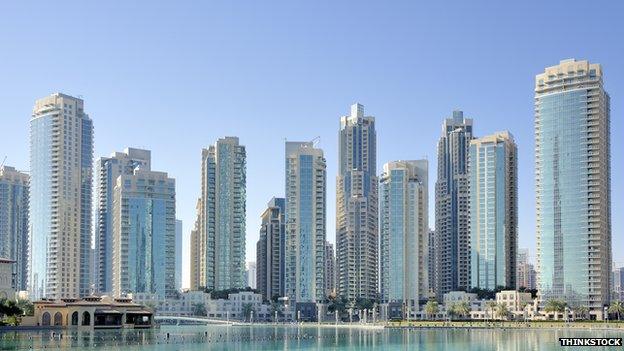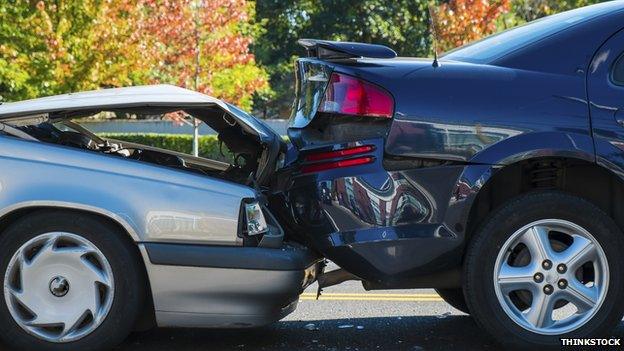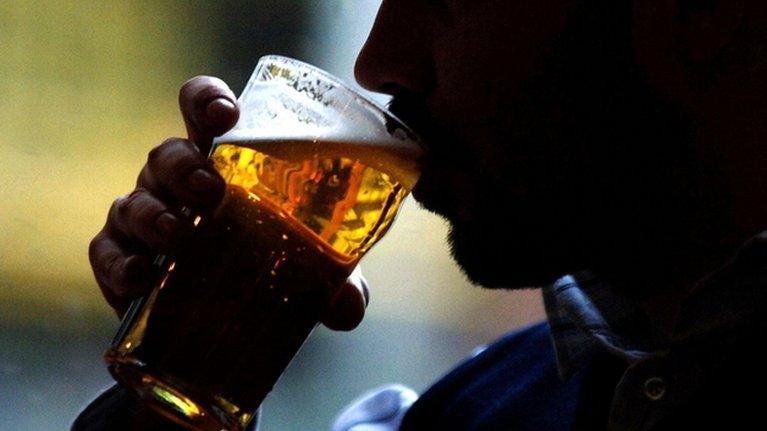Why not impose an outright ban on drink-driving?
- Published

The proposed rules would mean just one drink could put a driver over the legal limit
The government has announced plans to reduce Scotland's drink-drive limit to 50mg in every 100ml of blood. But why not just enforce an outright ban?
If the new plans are approved, they'll come into force on 5 December - just in time for the festive period.
The new limit - reduced from 80mg per 100ml of blood to 50mg - means in practice that people could be over the limit after just one pint of beer or glass of wine. It would also mean Scotland's limit was 30mg lower than England's.
A new public awareness campaign will warn drivers against drinking a drop. So those planning to enjoy mulled wine with their mince pie might have to leave their cars are home.
Increased risk
But if the rules aim to stop people from drink-driving at all, what's the point in a limit? Why not just introduce a zero-tolerance policy?
A 2010 NICE review, external found "strong evidence" that someone's ability to drive is affected if they have any alcohol at all in their blood.
Even those with a BAC (blood alcohol concentration) of between 0.02 (20mg per 100ml of blood) and 0.05 - people who would be within the new limit - are three times more likely to die in a vehicle crash.
So the potential new rules in Scotland aren't as strict as they could be. Sweden adopted a 20mg limit in 1990 - and the number of drink-driving accidents fell.
A 1997 study on the change showed that a 20mg limit reduced fatal crashes by 9.7%, with a 7.5% reduction in all crashes.
They also found out that the lower limit reduced crashes among drivers who were the most serious drink-driving offenders - so even drivers causing accidents who were found to be far over the limit reduced after the introduction of the ban.

The UAE is one of the few countries with a zero-tolerance policy for drink-driving
It seems obvious that the lower the limit, the fewer the accidents. But "absolute zero limits" - meaning anyone with a blood alcohol concentration above zero is driving illegally - are relatively rare.
Most of the countries in the world that have enforced a zero-tolerance policy - which include the UAE, Saudi Arabia and Pakistan - have done so for religious reasons.
Varying factors
When asked why Scotland couldn't just implement an outright ban, Justice Secretary Kenny MacAskill said: "There are reasons why individuals may have alcohol in their system."
These reasons might vary from person to person - because many factors can affect how quickly your body processes alcohol.
Though generally, alcohol is removed from the blood at the rate of about one unit an hour, weight, sex, and age can all play a part. So can the amount of food or water consumed, medication taken, type of alcohol, metabolism and even stress levels.
Which means that a thirsty middle-aged man who has just had a stressful day may be affected differently by a pint of beer than their drinking partner.
And many people don't realise that if they drive the morning after a heavy night, they may still be over the limit. Many more drivers could be penalised the following day if the limit was zero.
People can even consume alcohol without realising. Some foods, mouthwash and medication can contain alcohol.
Road safety campaign group Brake have said, external that 20mg is as close to an absolute ban as you can get without accidentally penalising those with trace element of alcohol in their bloodstream.

Someone driving the morning after drinking alcohol could still be over the legal limit.
Scottish example
Sir Ian Gilmore, chair of the Alcohol Health Alliance UK and special advisor on alcohol for the Royal College of Physicians, acknowledges the potential pitfalls of a zero-tolerance policy.
"I think it's fair to say that there are technical issues that need to be addressed with zero-tolerance. Obviously when you get down to very low levels it's difficult to be absolutely certain between a small level (of alcohol in the blood) and a very low level."
"The problems are not insurmountable, but I would say that zero-tolerance is the end point."
But Sir Ian acknowledges that it is unlikely that the UK will suddenly go from having the highest legal limit in Europe to having no tolerance at all.
The 50mg limit, however, is "a sensible intermediate step. And I think if you speak to any family of any victim of a drunk-driving accident you will hear the support for (zero-tolerance)."
The question that remains is whether other parts of the UK will follow Scotland's example.
Sir Ian, for one, believes in the possibility: "It should be like smoking in public places and so on - where Scotland leads and Westminster follows."
- Published24 October 2014
